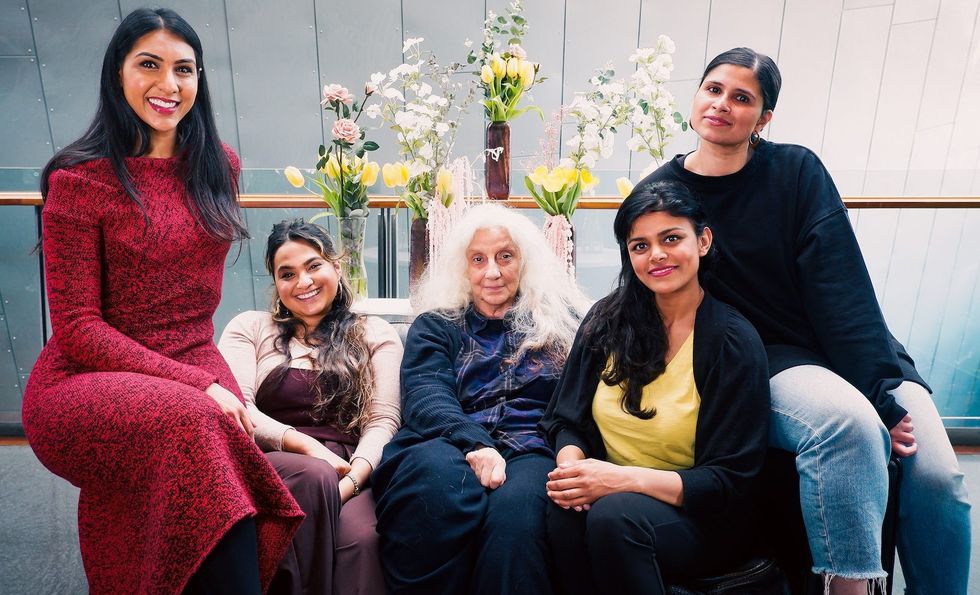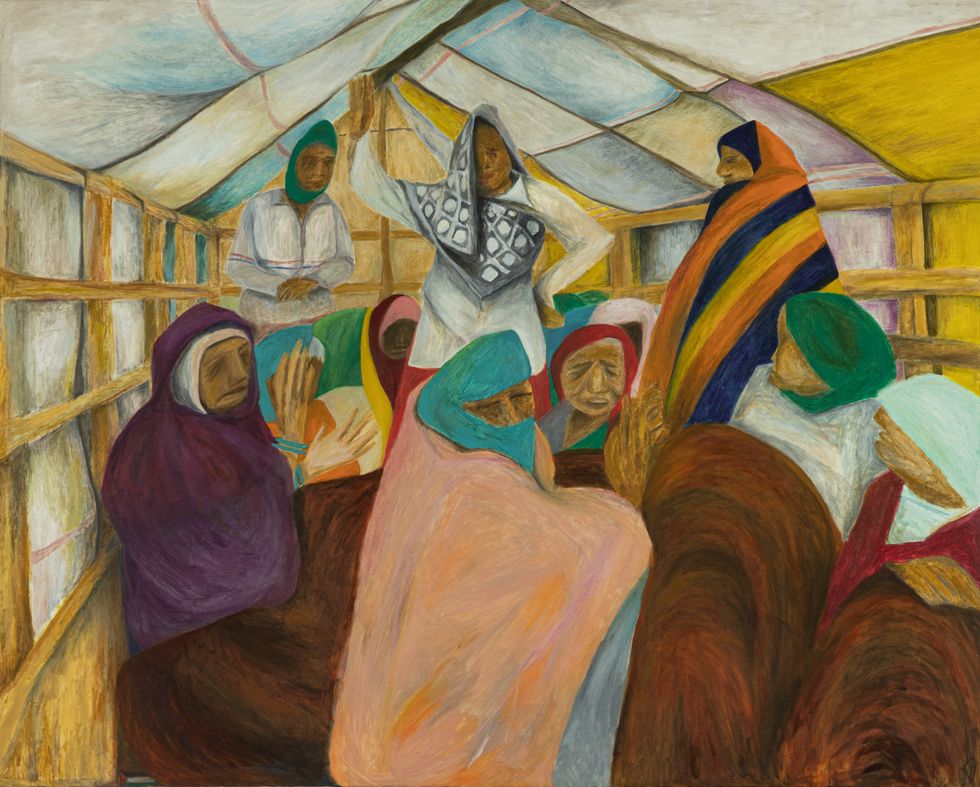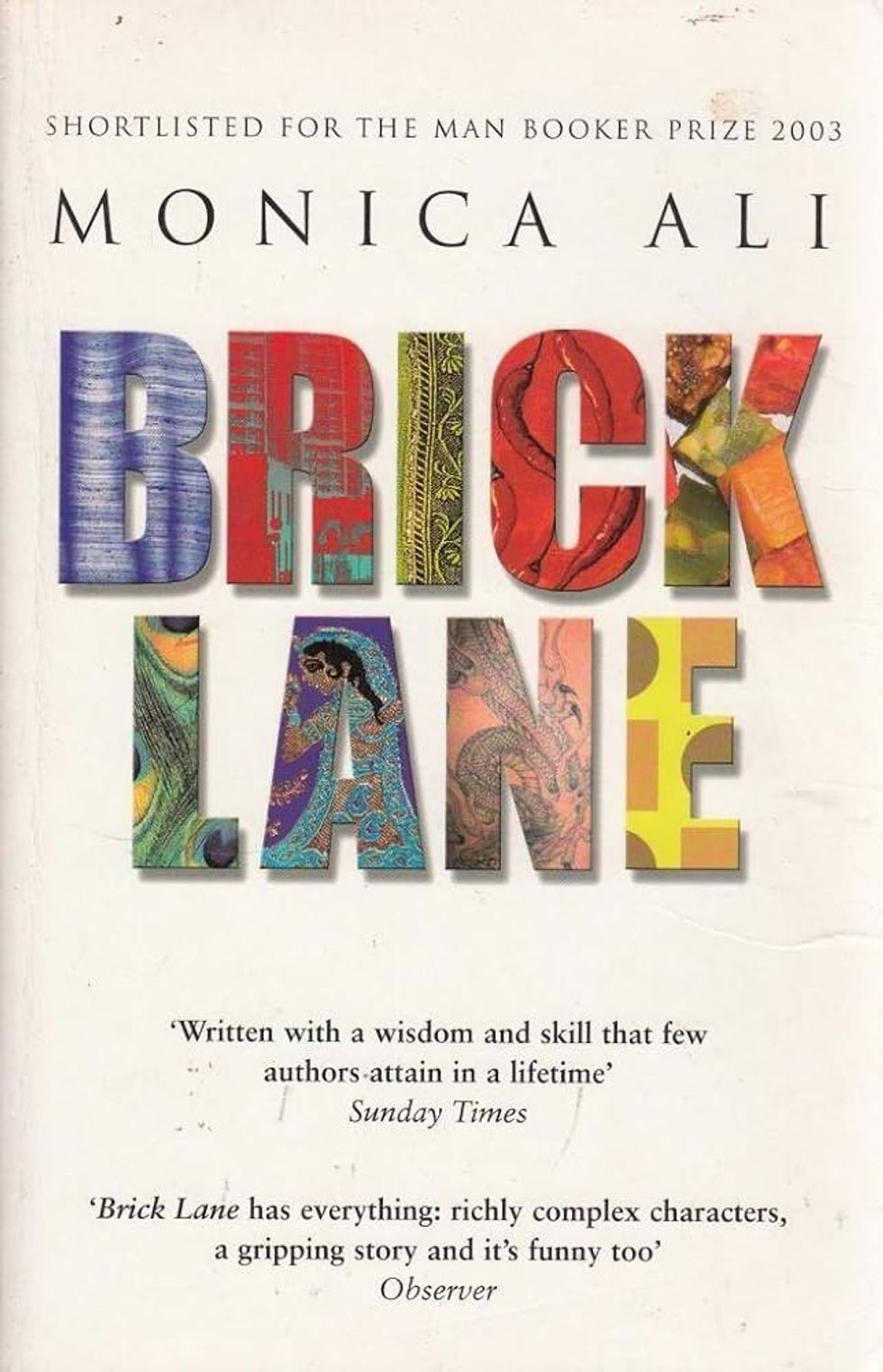AWARD-WINNING journalist turned playwright Satinder Chohan has an impressive body of theatre work that includes Zameen, Kabaddi-Kabaddi-Kabaddi, Made In India, Half of Me, Gulliver’s Travels and The Girl of Ink and Stars.
She has also written acclaimed audio dramas and is currently working on her first novel about the Punjabi Sikh diaspora. Her creative combination of engaging storytelling and tackling important issues continues, with new play Lotus Beauty, which is being staged at Hampstead Theatre in London from May 13 – June 18. The Pooja Ghai directed production following the intertwined lives of five multigenerational women, adds to the writer’s impressive body of work.
Eastern Eye caught up with the British writing hero to discuss Lotus Beauty, theatre, and her inspirations as a writer.
What first connected you to writing and theatre?
I always dreamt of being a writer but never had the confidence to do so. I was researching Meera Syal’s family history for the BBC’s Who Do You Think You Are? in Punjab, India. There, I learnt about untold farmer suicides in Punjab and India, ecological and economic devastation, due to increased corporate/chemical farming. After my return, I had to write about it. Thus Zameen, about a Punjabi cotton farming family, became my first full-length play.
What inspired Lotus Beauty?
The resilient women and vibrant ladies-only beauty salons of my hometown Southall inspired Lotus Beauty. Specifically, all those local women and immigrants who battled life hard but, tragically, took their own lives on the local train tracks.

Tell us about the play?
Lotus Beauty is set in a Southall beauty salon around the intertwined lives of five multigenerational Asian women – Reita, Big Dhadhi, Tanwant, Pinky and Kamal. There, these women pluck, tweeze, thread and wax lyrical about the successes and struggles in their suburban female lives.
Who are you hoping connects to it?
I hope girls and women of all backgrounds connect to this story but also, people from diverse communities – it’s a bigger story about the immigrant trauma we carry and seek to heal across generations. For others, I hope they glimpse an insight into a community they might not know much about.
Is there any key message that you want to convey?
I think the play honours the enduring solidarity and connection between women – urging us to help those less fortunate than ourselves, especially when equipped with the emotional or financial resources to do so. The play was also inspired by the myth of the Lotus Eaters; people who ate the lotus and forgot who they were and where they came from. Those of us from immigrant backgrounds should never forget who we are or where we come from – remembering personal and collective histories as we continue making the UK our home.
Do you have a favourite moment in the play?
Nothing specific, but may be moments of warmth and connection between the characters, reminding me of the unique bonds with extraordinary women in my
own life.
How do you feel before something you have written is staged?
Incredibly nervous, as it’s so exposing and vulnerable to do stage work as a writer. But it’s important not to be too unsettled and remember the work is a steppingstone in a continuing creative journey. So, I’m hoping my continuing lockdown practice of at least 20 minutes of daily meditation will help!
What can we expect next from you?
I enjoy storytelling across mediums. I’ve just adapted Pam Gems’ 1984 play Camille for BBC Radio 3. I’m also adapting the Partition novel A Beautiful Lie as a play, writing my own, Empire of the Mind, as well as continuing passion projects, including Pind, a novel about Punjabi immigrants, and short film Bussing.
What inspires you as a writer?
My family, culture, community, and working-class immigrant background. I am especially inspired by my grandparents and those who came before and all the sacrifices they made to give us the lives we lead. Still so many stories to tell!
What do you love about theatre?
For me, I love the way theatre is the most community driven of all the art forms. The way creatives create work together and then, actors and audience share a live communal space.
Why should we all come to see your play Lotus Beauty?
To support a Southall story, an all-female cast and voices that are too often ignored, in a Punjabi spirited play staged at one of the best theatres in London!
Lotus Beauty is being staged at Hampstead Theatre, Eton Avenue, London NW3
3EU from Friday May 12 - Saturday June 18, in association with Tamasha Theatre
Company. www.hampsteadtheatre.com






 Manmeet K Walia
Manmeet K Walia Salima Hashmi
Salima Hashmi Tikri Border, Haryana-Delhi by Aban Raza
Tikri Border, Haryana-Delhi by Aban Raza











 Beck Theatre’s new programme is the pantomime Sleeping BeautyBeck Theatre
Beck Theatre’s new programme is the pantomime Sleeping BeautyBeck Theatre Omid DjaliliBeck Theatre
Omid DjaliliBeck Theatre Paul ChowdhryBeck Theatre
Paul ChowdhryBeck Theatre San2 SinghBeck Theatre
San2 SinghBeck Theatre

 Her book
Her book